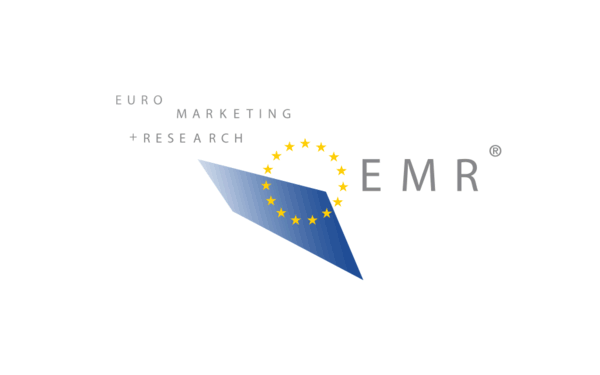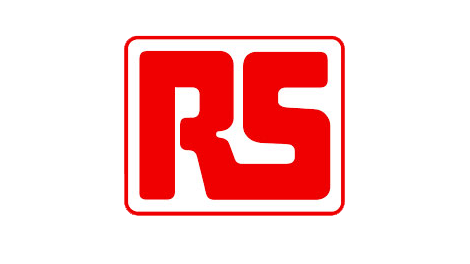RS Group – RS Group Expands its Better World Rang by 10,000 Products and Launches its Claimns Based Framework
The Better World product range includes 50 new suppliers and over 1,000 new products specific to sustainable energy solutions, demonstrating its ongoing commitment to champion sustainable and ethical procurement across the global industrial value chain
LONDON, UK, 05 March 2024 – RS Group plc (LSE: RS1), a global digitally-led provider of product and service solutions for industrial customers, has today announced its Better World Claims Based Framework, enabling customers to select verified sustainable product alternatives. This provides suppliers with a standardised framework to accelerate the development and manufacture of more sustainable and responsible products, providing a committed partner in RS.
As part of the new framework, the Group is extending its Better World range by 10,000 products and 50 suppliers, increasing the total to c.30,000 products from over 90 suppliers. More than 1,000 of the new products support energy and carbon reduction or renewable energy generation across customer facilities.
The company launched the Better World product range in March 2023, to enable the world’s engineers, innovators and problem solvers to make more sustainable and responsible product choices where each product is supported by robust evidence and verifications.
It comes in response to an increasing need from customers within process industry and manufacturing to purchase greener products that help improve operational efficiency and drive ambitious sustainability goals. The CIPS and RS Indirect Procurement Report 2024 showed ‘sustainable and ethical procurement’ as a top business pressure for UK procurement professionals, with 71% considering Environmental Social and Governance (ESG) as important when selecting products or services and 80% saying they would pay a premium for sustainable products.
With customers finding sustainable purchasing confusing and limited, the new Better World product framework was developed with and verified by external sustainability consultants. It ensures clear and robust categorisation of product sustainability claims, aligned to developing green claims legislation, including adhering to the industry-standard ISO 14021. The framework covers the key areas of the product lifecycle and claims are now classed into three main categories:
- Made more sustainably – products produced using more sustainable materials or manufacturing processes.
- Sustainable solution – products that help customers run their business more sustainably; from reducing energy and emissions to protecting health and safety.
- Supports circularity – products with an increased lifespan, or can be reused, repaired or recycled to reduce waste.
Danny Hobson, Head of Product & Supplier Sustainability at RS Group comments: “Our customers want to buy greener products to support their sustainability goals; but they find it difficult when there is such a limited selection. This framework has been developed to not only provide more simplicity and transparency for purchasing decisions, but also to ensure peace of mind that our green claims are genuine, comply with the latest regulatory guidelines and are backed by evidence. We have an important role to play across the value chain to encourage customers and suppliers to adopt greener choices, and today’s announcement ensures we are working collaboratively to design and build as sustainably as possible.”
RS Group’s Better World product framework sets a clear standard and precedence for sustainable products for the industry. The company is committed to partnering with suppliers and customers to advance a more sustainable and circular value chain. It also marks a significant step in its 2030 ESG action plan to offer customers 100,000 Better World products.
For more information about RS Group’s Better World products, please visit the company’s website.
SourceRS Group
EMR Analysis
More information on RS Group plc: See the full profile on EMR Executive Services
More information on Simon Pryce (Chief Executive Officer, RS Group plc): See the full profile on EMR Executive Services
More information on the Better World product Range by RS Group plc: https://uk.rs-online.com/web/content/m/better-world + With our Better World range, we are making it easier for you to make greener product choices you can trust, which are better for people, planet, and your business. Each product is tagged with our Better World badge and a description on its sustainability improvement. Whether you’re passionate about products that are made from greener materials, want solutions that help you save energy, reduce waste and water, or are looking for items that are designed to last longer – our range is here to help. We’ve broadened our framework to include a wider range of sustainability improvements and claims and split the products into three categories:
- MADE MORE SUSTAINABLY: Produced using more sustainable materials or manufacturing processes.
- SUSTAINABLE SOLUTION: Products that help you run your business more sustainably; from reducing energy and emissions to protecting health and safety.
- SUPPORTS CIRCULARITY: Products with an increased lifespan, or can be reused, repaired or recycled to reduce waste.
- We are continuously striving to enhance our offer, introducing a broader spectrum of improvements. We are on a journey, making progress with each step to create a positive change for our planet, one product at a time.
More information on Danny Hobson (Head of Product & Supplier Sustainability, RS Group plc): See the full profile on EMR Executive Services
More information on RS Group Sustainability and the RS Group ESG Report 2022/2023: See the full profile on EMR Executive Services
More information on CIPS (Chartered Institute of Procurement and Supply): https://www.cips.org/ + A global membership organisation driving positive change across our profession. We are the voice and standard, defining and amplifying best practice across all our worlds.
As the awarding body for the profession we lead in education and training. Helping professionals advance their ambition. We provide insights, information and tools. Enabling members to develop their own best practice. We help build capability within organisations. Interrogating, troubleshooting and training. Through all our work, we build a community.
A global network of professionals powering procurement and supply so our societies can thrive.
More information on ISO (International Organization for Standardization): http://www.iso.org/ + ISO is the world’s largest developer of International Standards. Through our members and their stakeholders, we bring people together to create International Standards that respond to global challenges. ISO standards support global trade, drive inclusive and equitable economic growth, advance innovation and promote health and safety to achieve a sustainable future. Follow us to learn more about standards and how you can participate to making lives easier, safer, and better.
EMR Additional Notes:
- Carbon Dioxide (CO2):
- Primary greenhouse gas emitted through human activities. Carbon dioxide enters the atmosphere through burning fossil fuels (coal, natural gas, and oil), solid waste, trees and other biological materials, and also as a result of certain chemical reactions (e.g., manufacture of cement). Carbon dioxide is removed from the atmosphere (or “sequestered”) when it is absorbed by plants as part of the biological carbon cycle.
- Biogenic Carbon Dioxide (CO2):
- Carbon Dioxide released as a result of the combustion or decomposition of organic material, that is biomass and its derivatives. Examples include carbon dioxide released during the combustion of wood and biogas generated by decomposition.
- Biogenic Carbon Dioxide (CO2) and Carbon Dioxide (CO2) are the same. Scientists differentiate between biogenic carbon (that which is absorbed, stored and emitted by organic matter like soil, trees, plants and grasses) and non-biogenic carbon (that found in all other sources, most notably in fossil fuels like oil, coal and gas).
- Carbon Capture and Storage (CCS):
- CCS involves the capture of carbon dioxide (CO2) emissions from industrial processes, such as steel and cement production, or from the burning of fossil fuels in power generation. This carbon is then transported from where it was produced, via ship or in a pipeline, and stored deep underground in geological formations.
- CCS projects typically target 90 percent efficiency, meaning that 90 percent of the carbon dioxide from the power plant will be captured and stored.
- Decarbonization:
- Reduction of carbon dioxide emissions through the use of low carbon power sources, achieving a lower output of greenhouse gasses into the atmosphere.
- Carbon Footprint:
- There is no universally agreed definition of what a carbon footprint is. A carbon footprint is generally understood to be the total amount of greenhouse gas (GHG) emissions that are directly or indirectly caused by an individual, organization, product, or service. These emissions are typically measured in tonnes of carbon dioxide equivalent (CO2e).
- In 2009, the Greenhouse Gas Protocol (GHG Protocol) published a standard for calculating and reporting corporate carbon footprints. This standard is widely accepted by businesses and other organizations around the world. The GHG Protocol defines a carbon footprint as “the total set of greenhouse gas emissions caused by an organization, directly and indirectly, through its own operations and the value chain.”
- ESG (Environmental, Social and Governance):
- Refers to the three key factors when measuring the sustainability and ethical impact of an investment in a business or company. Most socially responsible investors check companies out using ESG criteria to screen investments.
- ESG metrics are not commonly part of mandatory financial reporting, though companies are increasingly making disclosures in their annual report or in a standalone sustainability report.
- There is not a standardized approach to the calculation or presentation of different ESG metrics.
- Environmental: Conservation of the natural world
- Climate change and carbon emissions
- Air and water pollution
- Biodiversity
- Deforestation
- Energy efficiency
- Waste management
- Water scarcity
- …
- Social: Consideration of people & relationships
- Customer satisfaction
- Data protection and privacy
- Gender and diversity
- Employee engagement
- Community relations
- Human rights
- Labor standards
- …
- Governance: Standards for running a company
- Board composition
- Audit committee structure
- Bribery and corruption
- Executive compensation
- Lobbying
- Political contributions
- Whistleblower schemes
- …
- Environmental: Conservation of the natural world
- Criteria are of increasing interest to companies, their investors and other stakeholders. With growing concern about he ethical status of quoted companies, these standards are the central factors that measure the ethical impact and sustainability of investment in a company.
- Consequently, ESG analysis considers how companies serve society and how this impacts their current and future performance.
- CSR (Corporate Social Responsibility):
- Framework or business model that helps a company be socially accountable to itself, its stakeholders, and the public.
- The purpose of CSR is to give back to the community, take part in philanthropic causes, and provide positive social value. Businesses are increasingly turning to CSR to make a difference and build a positive brand around their company.
- CSR tends to target opinion formers – politicians, pressure groups, media. Sustainability targets here the whole value chain – from suppliers to operations to partners to end-consumers.
- CSR vs. ESG:
- CSR is a company’s framework of sustainability plans and responsible cultural influence, whereas ESG is the assessable outcome concerning a company’s overall sustainability performance.
- The major difference between them is that CSR is a business model used by individual companies, while ESG is a criteria that investors use to assess a company and determine if they are worth investing in.


